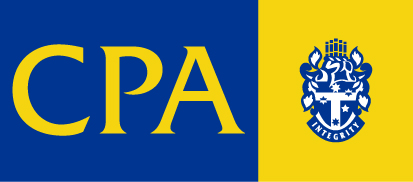State revenue authorities are requesting increasingly detailed information about contractor arrangements as part of payroll tax audits, a law firm warns.
Businesses need to ensure they are keeping ongoing records and evidence about contractor relationships with revenue authorities “drilling down into the details” of these arrangements during reviews, Cooper Grace Ward Lawyers has cautioned.
Cooper Grace Ward partner, Fletch Heinemann, said one of the most important things for businesses to be doing where they use contractors is to consider what evidence they may need for a future audit before one occurs.
Speaking ahead of the upcoming 2024 Annual Workplace Law Masterclass, Heinemann said if a firm identifies issues ahead of time and self-corrects before the ATO or revenue authority conducts a review, they may be able to reduce any penalties that apply.
The other reason why it’s important to do this work is that it can be difficult to obtain evidence later on, particularly from contractors, he said.
Heinemann said businesses should put themselves in the shoes of an ATO auditor or a state revenue authority auditor and think about what evidence they may need to provide.
For superannuation, that will mean checking that the contracts aren’t going to be subject to the Superannuation Guarantee. For state revenue authorities, that means ensuring that payments to these contractors are not going to be subject to payroll tax, he said.
“One of the really difficult things for payroll tax purposes is that to get within the scope of the exemption, often it’s the contractor that’s got the evidence that you need,” Heinemann said.
“If I’m engaging a dozen contractors to help me for something and the QRO up in Queensland, for example, turns around and says they want evidence that the payments to those contractors are exempt, I’m going to need to ask those contractors whether or not there’s somebody else, other than the person that I’m dealing with, who is helping with the work.
“That’s a question that they’re going to know and often you won’t see it on an invoice, particularly if we’ve set the price on the basis that the job is X amount.”
Heinemann said that at the moment revenue authorities are requiring a “very high standard of proof to be satisfied that that’s covered”.
“The difficulty with that is that we’re not acting for that contractor. So that contractor, it’s not their payroll tax problem and if we’re not using them anymore they may not be bothered to help with the payroll tax issue.”
“If they’re still being contracted then hopefully they’re more motivated to help out for the sake of the business relationship.”
Heinemann said while the two-person exemption may seem easy to substantiate, revenue authorities are drilling down into very specific details at the contractor level.
“They’re asking to see the payments to these contractors or asking businesses to show the amounts that they’ve withheld from your employees,” he said.
“If that’s one case, that’s probably okay, but if you’ve got 200 contractors and you have to make 200 phone calls and gather 200 bundles of evidence, then that’s tough.”
Heinemann said that businesses may therefore want to ensure that the evidence that they’ve got just from their day-to-day business activities is good enough to satisfy the revenue authorities if they ever come and ask about it.
“From personal experience, if we have to go and get that evidence later on, four or five years down the track, then it just tends to be a bigger, uglier and more expensive exercise than if we get the right evidence as we go along.”
Author
Miranda Brownlee





